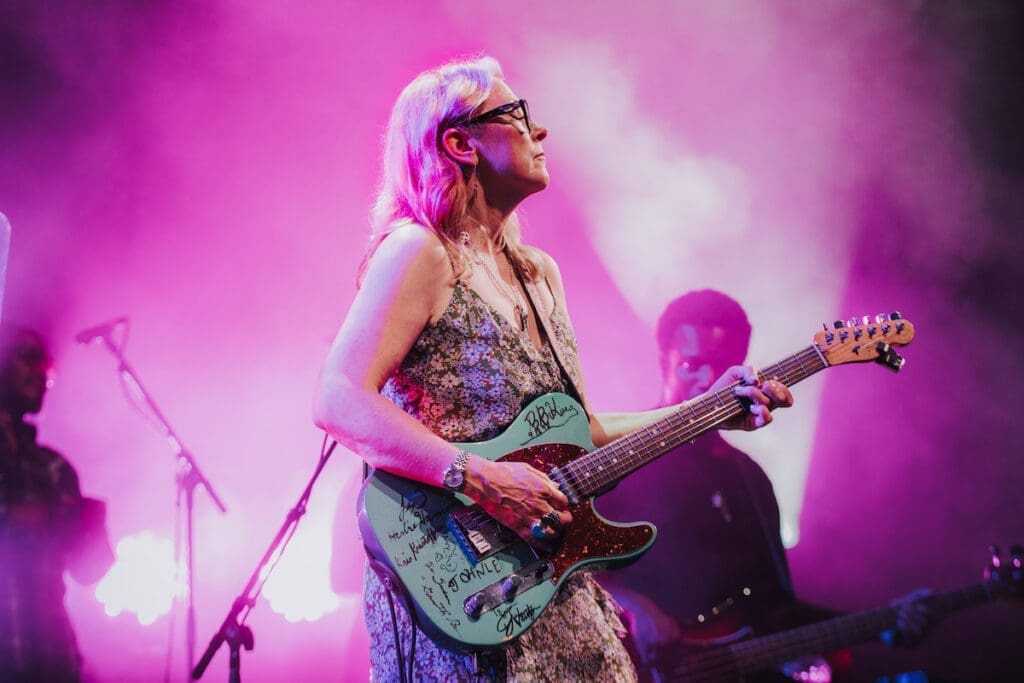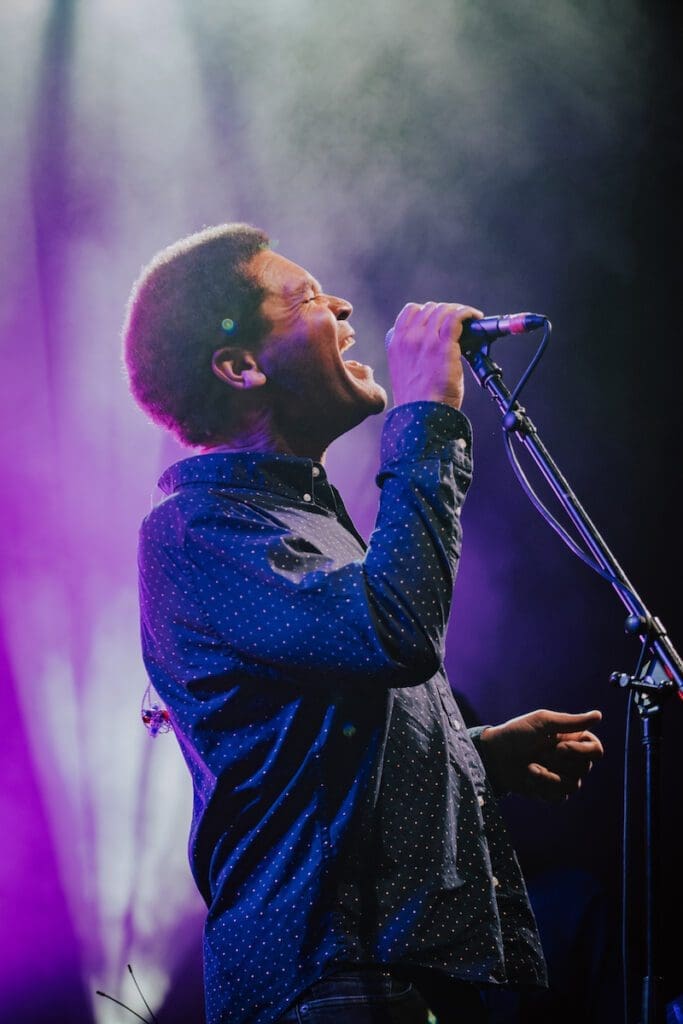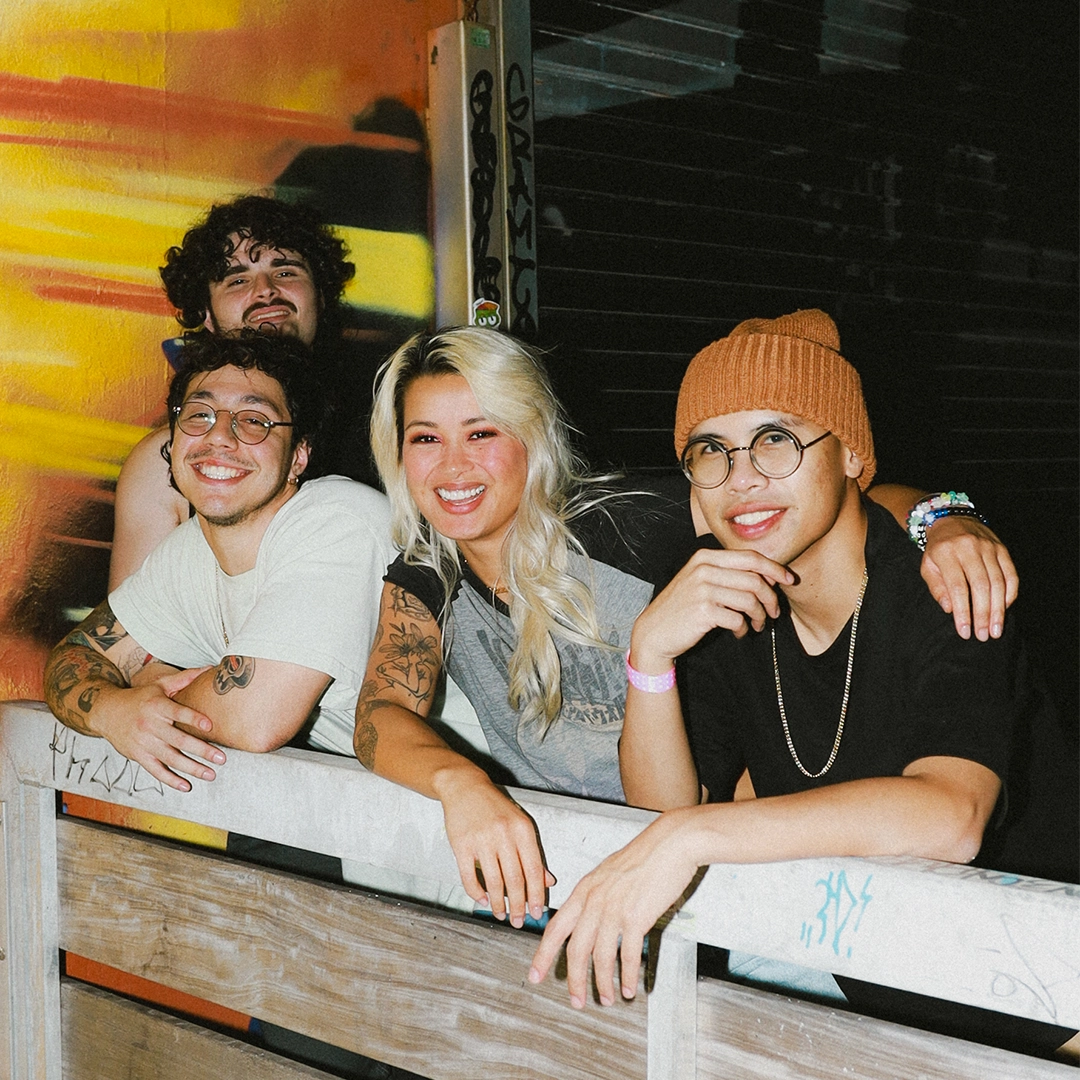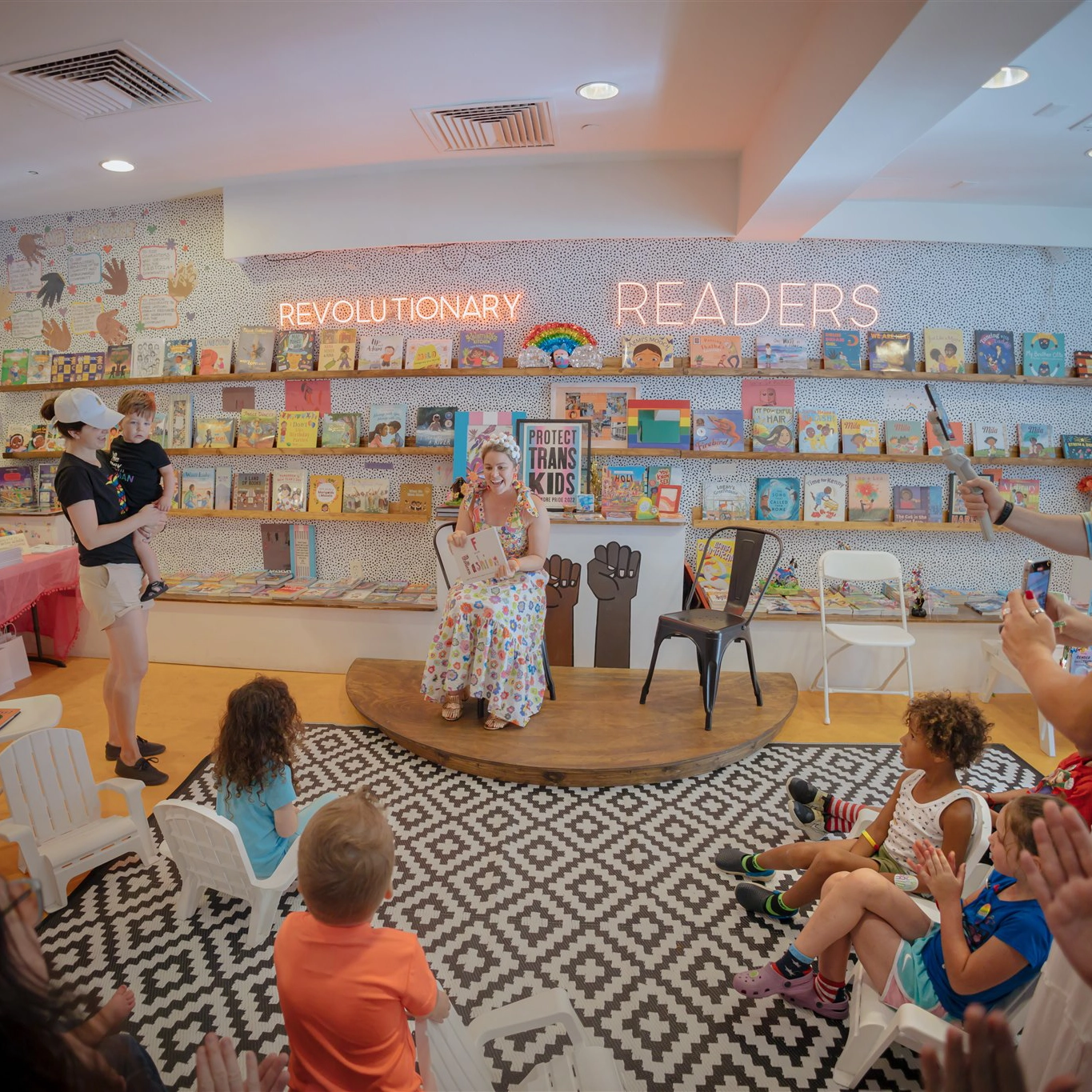Tedeschi Trucks Band Reignites the Flame of American Music
The Jacksonville band began their Wheels of Soul tour with slow ballads, tributes to rock legends and a litany of new covers.

It was a balmy Thursday afternoon in downtown Jacksonville as I made the walk into Daily’s Place. The smell of cheap beer and medical marijuana mingled in the air, along with the palpable buzz for who was about to take the stage. Tonight was a hometown affair for the husband-wife-pair Susan Tedeschi and Derek Trucks, as their 12-piece band was about to play the first show of their “Wheels of Soul” tour.
Just as the pre-show jitters set in, I scanned the chatty audience and took my seat in the 5,500-seat amphitheater, an entertainment complex extending out of TIAA Bank Field, home to the Jacksonville Jaguars. To my right sat an older couple, who both wore faded Allman Brothers Band t-shirts. In front of me, a college student danced to the eclectic pre-show mix. And to my left, a group of businessmen sipped IPAs and debated Trucks’ place on the “Top 100 Guitarists” list.
Still referenced to this day, Trucks was found to be number sixteen: nestled between stoner-rock legend Neil Young and bluesman Freddy King. Trucks refined his talent early on, picking the instrument up at age nine and opening for the Allman Brothers Band at 12. Trucks grew into his role with the group, playing lead guitar beside Butch Trucks, his uncle and the band’s longtime drummer. Similarly, Tedeschi formed her eponymous band, wowing audiences with her gritty voice and guitar chops. The two met in 1999 and were married two years later, before joining forces in 2010. Cultivated by the pair’s musical knowledge, the group has come to synthesize the American songbook into their works, ranging from jazz, blues, gospel and R&B.

As the scenes inside Daily’s Place played out, a burly man wearing a pearl snap and cowboy hat sauntered onto the stage. He introduced himself as Vincent Neil Emerson and strapped on his hollow-body guitar, before busting into a road ballad. Eventually, the Texan played a new tune, entitled “Valley of the Gun.” In this song, Emerson reckons with his home state’s never-ending cycle of gun violence: referencing last year’s school shooting in Uvalde. Around this time, I muttered to my date: “I’ll eat my words if he doesn’t play a Willie song.” Sure enough, Emerson and his band jumped into the 1973 classic “Devil In A Sleeping Bag.” After a few more pedal steel and Telecaster solos, the crooner exited the stage, having gained some new fans in the Sunshine State.
Eventually, as the sun set around us, so fell the house lights and a purple hue blanketed the crowd. The power couple stepped on the stage and began the night with a cover: “Woman to Woman” by Joe Cocker. Over the years, the band has taken much influence from the English rocker, even performing a tribute concert with fellow Floridian Rita Coolidge, among others.
After a few more songs, the duo swapped their guitars for a pair of Les Pauls. The ever-so-constant yells of “DUUVAAALL” (a reference to Duval County where the Jaguars play) took over, as Tedeschi lamented on another year of Jags football. “We’ll be out there in Lot J,” she said to cheers from the audience. The group faded into the Allman Brothers’ “Stand Back,” a respectful nod to the band’s Jacksonville roots. Trucks launched into a particularly fiery solo—channeling the energy of the late Gregg Allman—before the band transitioned into a cover of Freddie Hubbard’s “Mr. Clean.” For this number, trumpet player Ephraim Owens took a lengthy solo, drawing inspiration from Ornette Coleman’s guttural compositions and Miles Davis’ constrained wails. The band then fell back into the head of the composition before finishing the barnburner of a song.

The momentum slowed as they began “Take Me as I Am,” an emotive plea for peace and understanding. For the next few numbers, Tedeschi and their background vocalist, Mike Mattison traded lead vocals: before building steam for yet another powerhouse song. This one began as an instrumental between Trucks and saxophonist Kebbi Williams. Williams took advantage of his instrument’s full register, droning out a low note that mingled with immaculate guitar playing. Trucks’ melodic slide work then rolled into the 2011 hit “Midnight In Harlem.” The track, off their Grammy-award-winning debut album, takes the listener through a journey of pain, hope and rejuvenation. Attributed to Mattison, the lyrics reflect his ability to write emotive, detail-filled arrangements, perhaps culled from his Harvard degree in English and American Literature. He describes the loneliness of a shuttered-up neighborhood, with no place to turn. The music reflects a similar journey: a constant back-and-forth between resolved and unfolding tension, whether expressed from the horns section, the guitars or the organ. The lengthy song, a fan favorite, elicited enraptured reactions from the crowd. Some cried, some whistled and screamed, some threw their hands in the air.

After a few words of discussion, the members decided on “I Feel So Bad,” a blues B-side by Lightnin’ Hopkins. For the set’s conclusion, the group began a suite of songs, beginning with “I Want More,” from their 2016 album Let Me Get By. The song saw solos from Tedeschi and Trucks before the onus landed on their two drummers. They explored their rhythmic influences, sounding like straight Southern rock at times while incorporating African and Latin flair. Eventually, the full ensemble came back in, playing Jeff Beck’s “Bolero.” The song was the first solo recording by the late guitarist, taking from earlier French orchestral compositions. This was the band’s first time playing it on tour, taking on new meaning since the passing of Beck earlier this year. The couple had performed the song at a star-studded memorial show dedicated to Beck in London in May, which included the likes of Eric Clapton and Billy Gibbons. The ensemble concluded the moving tribute before thanking the hometown crowd.
They soon returned for a two-song encore: both covers from their extensive list of influences. First, they played, “Keep On Smilin’” by Wet Willie, another Southern rock group that worked in the wake of the Brothers. The 1974 hit preached the infectious nature of joy, which was on full display at the show. For the final song of the night, the band took a darker turn, playing “Doo Doo Doo Doo Doo (Heartbreaker)” by the Rolling Stones. The lyrics recount two stories of death at the hands of gun violence and drug overdose, but the music takes on an R&B tone, making it perfect for a closing song.
As the music faded out, all I could wish for was another chance to see them again, whether in my hometown, the hallowed halls of a Nashville venue, or Colorado outdoors, surrounded by prehistoric rock formations. Walking down the stairs and into the parking lot, I heard the mutterings of my fellow fans around me. They reflected on their lives and the role music played in them. “I remember hearing that Stones song years ago,” one said. Another responded, “Yeah, I can still remember the old ‘45 record I had of it.” The exchange got me thinking: I can only hope that the couple’s music would have such a profound legacy as the Stones: standing at the crossroads between the past of American music and an uncertain future, inflected with hope and optimism.





